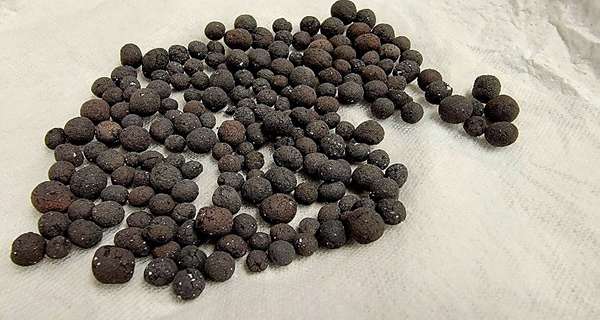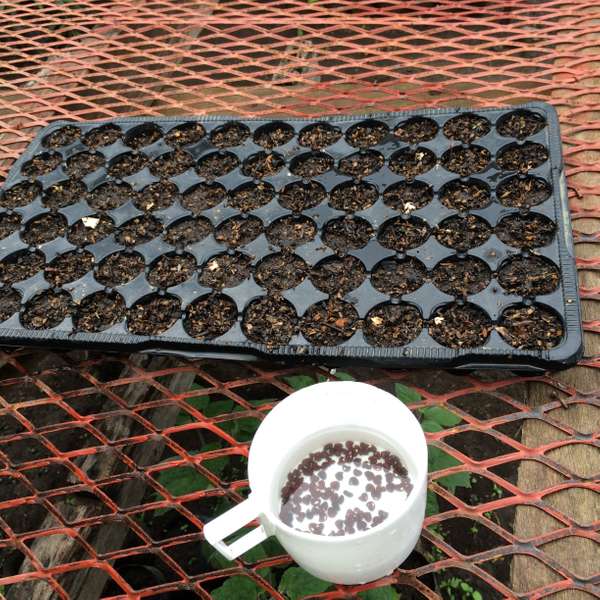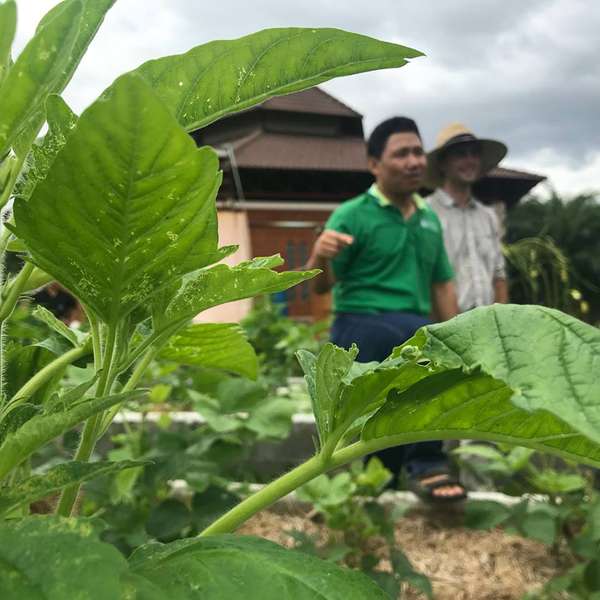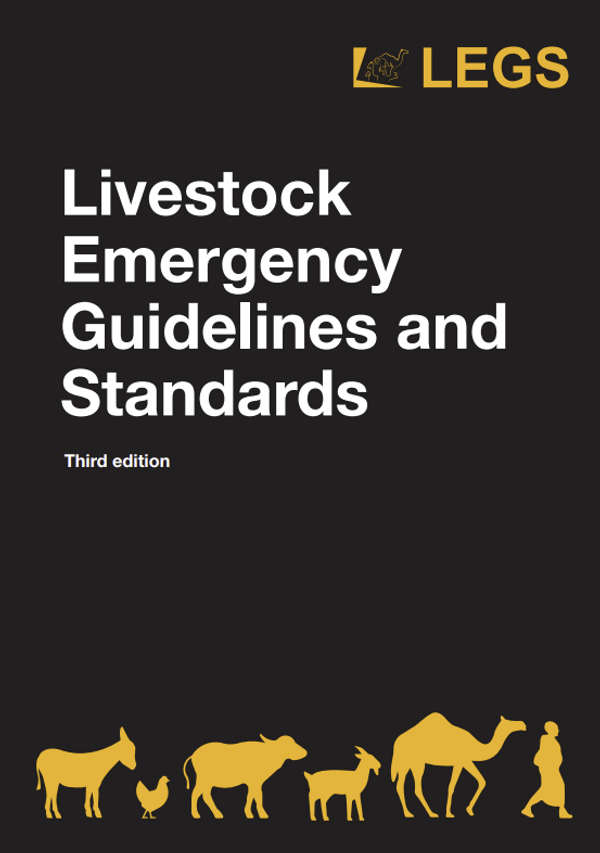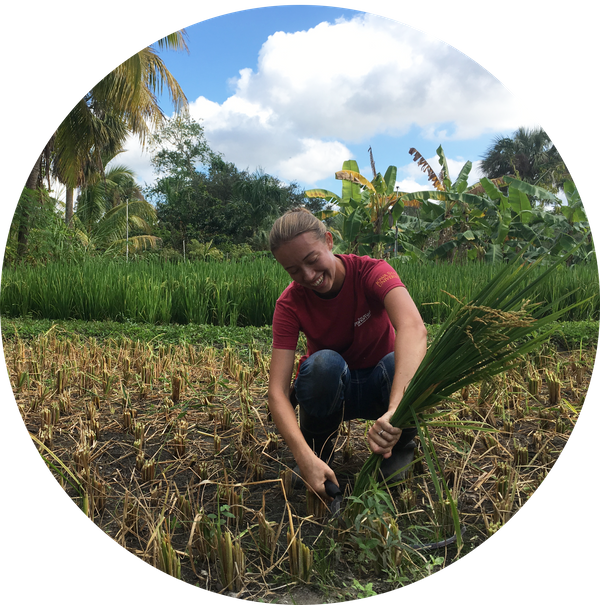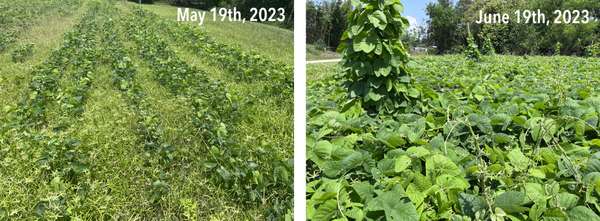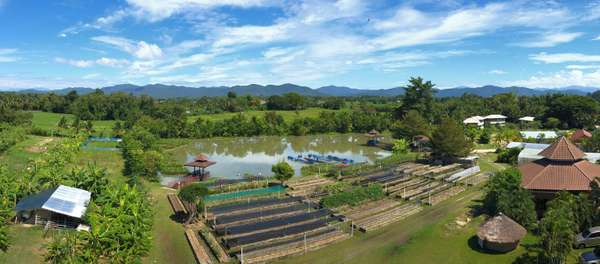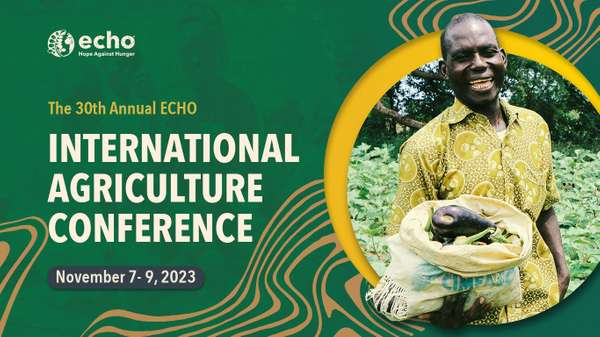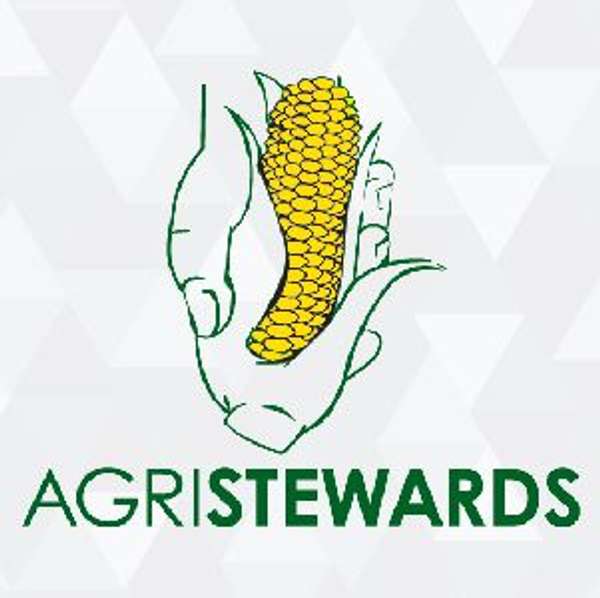ECHOcommunity Updates
Research Update: Clay Beads for Drying and Preserving Seeds 2023-10-17
At ECHO in Florida, staff have been working to develop a method for small-scale farmers and community seed banks to make their own desiccant to dry and preserve seeds. The three main requirements are clay, wood ash, and a way to heat the beads. Wood ash is a common byproduct of wood-burning cookstoves, and clay can be obtained from clay soil found in many parts of the world. Heating can be done with a forge used by local blacksmiths.
Keeping some desiccant with the seeds, in their storage containers, will help keep seeds dry.The clay beads ECHO has been working with can easily be added to clay pots, tin cans, and glass or plastic bottles. Some closed containers are not perfectly sealed. Even glass jars are not completely airtight if the lids do not seal well. In such cases, keeping some desiccant with the seeds, in their storage containers, will help keep seeds dry. If using well-sealed containers, a farmer could 1) use the desiccant to dry seeds initially and then remove it or 2) keep the desiccant with the seeds if she/he will need to open the container from time to time to access the seeds.
Read More Watch the video online
EDN #161 Now Available 2023-10-03
In this issue:
- Factors that Impact Seed Germination
- Echoes From our Network: Moringa Spacing Considerations
- From ECHO’s Seed Bank: Clay Beads for Drying and Preserving Seeds
- Books, Websites, and Other Resources: Aprovecho.org- Information on Fuel-Efficient Cookstoves
Factors that Impact Seed Germination
ECHO Staff and Network Members
Excerpt:
Another important cause for seed germination or seedling failure includes planting seeds too deep or too shallow. If seeds are planted too deeply, the seed may not contain enough energy to push the shoot out of the soil before it exhausts its food reserves (endosperm). If seeds are planted too shallow, roots may not be anchored deep enough, or seeds may dry out easily. As a general rule, you should plant seeds three to four times the width of the seed (Gilroy, 1986). Small seeds need little or no soil covering but are extremely vulnerable to drying out so make sure to water frequently during the first few weeks of these seeds’ life. Larger seeds have greater amounts of energy to push the first shoot (plumule) through the soil and into the air above the soil. Orientation of the seed being sown is not vital as seeds innately sense gravity and will send shoots up and roots down.
CED Webinar on Agriculture Training and Savings Groups Now Available! 2023-09-19
Robert Morikawa from Plant with a Purpose shared research conducted by Hope International and Plant with a Purpose in Burundi for the first-ever Agriculture Community of Practice. The community of practice around agricultural development will continue to meet and share important information with each other. This space is meant to focus on the assets and needs of smallholder farmers.
Watch the Webinar Learn more about the Community of Practice
ECHO International Agriculture Conference - Speaker Highlight: Philip Deal 2023-09-12
Philip Deal, Ph.D.
International Director of Programs, Water4
November 7-9 | Fort Myers, Florida Register Today!
Philip has worked in the rural water sector for 10 years, supporting projects across sub-Saharan Africa. In 2015, Philip began partnering with Water4 through the University of Oklahoma to assess their service delivery model in Ghana. Over the next several years, he was able to track their progress and evaluate the success of what has become a key enterprise partner – the first to attain district-wide coverage. His passion is to see rural water service mature in professionalism and sustainability, and see consistent health benefits for the people served. Philip holds a PhD in Civil Engineering from the University of Oklahoma.
Livestock Emergency Guidelines and Standards (LEGS) Handbook and Webinar 2023-09-05
The Livestock Emergency Guidelines and Standards recently released the third edition of the handbook. You can view the handbook, download a PDF copy, or purchase a copy from their website below. This edition includes case studies of applications of guidelines as well as step-by-step guidance on how to use the LEGS tools to develop an emergency response plan. The first three chapters focus on general principles and decision-making:
- Chapter 1 introduces LEGS and provides an overview of emergencies, livestock and livelihoods.
- Chapter 2 presents the eight LEGS Principles that underpin all LEGS-based interventions
- Chapter 3 provides step-by-step guidance and tools for emergency response planning
The remaining chapters focus on the six LEGS technical intervention areas: feed, water, veterinary support, shelter, livestock offtake, and the provision of livestock.
Watch the Global Launch Webinar for LEGS Handbook: 3rd Edition
Agroecosystems for Smallholder Resilience 2023-08-29
Tropical Agriculture Development Course
Fort Myers, Florida | September 11-15
This course is a deeper dive into sustainable agriculture options for smallholder farmers in the tropics. We will be taking a big-picture view as we look at agroecosystems as a whole. We will then dive deeper into systems function and design as we discuss the following four types of tropical agroecosystems:
- Conservation Agriculture
- Sloping Agricultural Land Technology
- Agroforestry
- System of Rice Intensification
Course participants will get hands-on experience managing these systems on the ECHO Global Demonstration and Research Farm.
Research Update: No-Till Planting of Velvet Bean 2023-08-22
Can you plant a cover crop into grass?
Velvet bean (Mucuna pruriens) grows well during Florida’s hot and humid summers. It is a vining cover crop, known for its ability to produce an abundance of biomass that quickly covers the ground and smothers weeds. With that in mind, we selected velvet bean as a legume to plant as a fallow crop in our research plots. We hypothesized that velvet bean could be sown directly into a field of grass and that it would, in time, cover the ground and overtop the grass.
To establish the planting we began by mowing the plots at a height of 8 to 10 cm. The next day the seeds were jab-planted at a spacing of about 50 (between-row) X 20 (in-row) cm. Velvet bean provided adequate cover to suppress weed growth. In addition to weed suppression, an abundance of biomass has implications for soil improvement, if the biomass is left in the field.
Read more about the results of using velvet bean to smother grass
ECHO Asia Agriculture & Community Development Conference 2023 2023-08-15
October 16-20 | Chiang Mai, Thailand
How can we help small-scale farming initiatives thrive in Asia? We can provide low-cost, innovative options that allow people to grow both their crops and their knowledge, expand their operations, and thrive!
Early Bird Special ends on August 31st!
Join us for 4-days of networking and opportunities to share ideas, technologies appropriate for small-scale farmers, and lots of practical demonstrations at the ECHO Asia Seed Bank & Small Farm Resource Center. In addition to morning plenary speakers, we will conduct afternoon workshops at the ECHO Small Farm Resource Center, an evening poster session, a seed exchange, and a 1-day site visit to an area best practice site!
Register Today for ECHO's 30th Annual International Agriculture Conference! 2023-08-08
Celebrating 30 years of learning together
November 7-9 | Fort Myers, Florida Register Today!
Welcome to the 30th annual ECHO International Agriculture Conference! The plenary speakers, breakout sessions and workshops provide opportunities for learning with others devoted to eradicating hunger and improving lives through agriculture, clean water, and community development. Speakers share their agricultural challenges and successes, personal experiences, and transferrable principles for improving the lives of millions facing food insecurity daily. The highlight is networking with like-minded practitioners, researchers, and educators. The conference is from November 7-9 in Fort Myers, Florida. Come celebrate 30 years of networking and learning together!
AgriStewards Events this month! 2023-08-01
This month, AgriStewards is hosting 3 concurrent events in Indiana, USA.
NetCAP | August 9 Register Here
The 2023 Conference of workshops and networking is around the topic “Supply Chain – from Farm to Feed – supporting farmers and food security among the rural poor.” We always have a variety of topics not necessarily all related to the main theme. The main goal here is networking and it has been a great opportunity for that. Please come to learn and share your ideas.
Foundations for Farming Training | August 10-12 Register Here
Foundations for Farming Vegetable Training | August 14-15 Register Here
